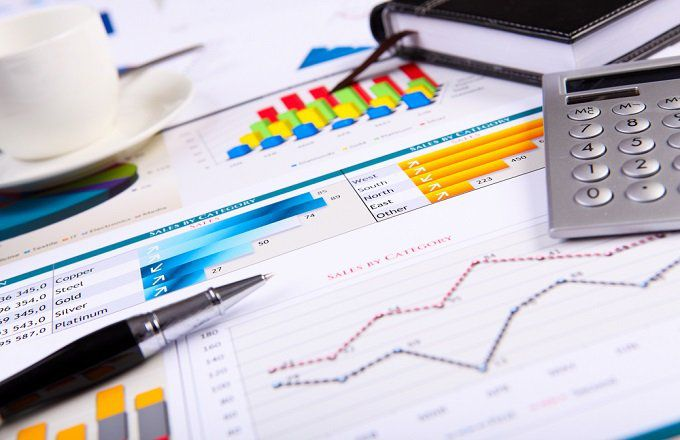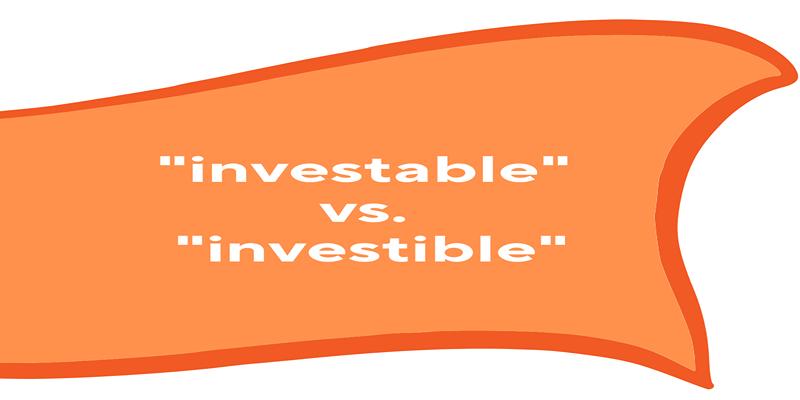Are you looking to diversify your portfolio and invest in commodities ETFs? 2020 has been a wild ride of stock market fluctuations, so if you're setting up your Q2 2023 investing strategy, it's important to consider the best-of-the-best commodity exchange-traded funds (ETFs).
In this blog post, we'll review the top Commodities ETFs that provide exposure to energy, materials, and agricultural stocks for investors.
Armed with insights on traditional as well as alternative investments like leveraged/inverse exchange-traded products (ETPs), our comprehensive list can help guide your decision-making process when building a portfolio tailored towards commodity exposure. Read on to discover the most compelling Commodity ETFs for Q2 2023!

What are commodities ETFs, and why should you invest in them?
Commodities ETFs are exchange-traded funds (ETFs) that track the performance of commodities markets, offering investors exposure to futures contracts and other related instruments.
These ETFs offer diversification benefits by providing a way to gain exposure to commodities without directly holding the physical commodity or investing in individual stocks. Additionally, these funds can be used to hedge against inflation and other economic risks.
Investors should consider their risk tolerance, time horizon, and desired goals when investing in commodities ETFs. While the potential for higher returns is attractive, there are also greater risks associated with these investments due to the volatility of commodity prices.
For Q2 2023, here are some of the best commodities ETFs to consider:
- Invesco DB Agriculture Fund (DBA)
- iShares Bloomberg Commodity Indexed Trust (COMT)
- United States Oil Fund LP (USO)
- iPath Bloomberg Industrial Metals Subindex Total Return ETN(JJM)
- United States Natural Gas Fund LP (UNG)
- iShares Silver Trust (SLV)
- United States 12 Month Oil Fund LP (USL)
These funds offered a combination of broad market exposure and specialized sector exposure, allowing investors to diversify their portfolios while gaining access to commodities markets.
The top 5 commodities ETFs for Q2 2023
1. iShares S&P GSCI Commodity-Indexed Trust (GSG) – This ETF tracks the performance of the S&P Goldman Sachs Commodity Index, composed of 24 commodities across energy, industrial metals, precious metals, and agricultural sectors. GSG offers a diversified approach to investing in commodities and is one of the largest and most liquid ETFs in the commodities space.
2. United States Commodity Index Fund (USCI) – This ETF offers exposure to a broad basket of commodity futures contracts, including energy, industrial metals, precious metals, and agricultural products. USCI acts as an index fund, tracking the performance of the Summer Haven Dynamic Commodity Index Total Return.
3. SPDR S&P Oil & Gas Exploration & Production ETF (XOP) – XOP provides exposure to a basket of companies involved in the exploration and production of oil and gas, including large-cap companies such as Exxon Mobil and Chevron. This ETF offers investors a way to gain direct access to the performance of the oil and gas sectors without having to buy individual stocks or futures contracts.
4. Invesco DB Agriculture Fund (DBA) – DBA tracks an index of futures contracts on some of the most liquid agricultural commodities, such as corn, wheat, soybeans, sugar, cocoa, and live cattle. This ETF is well-diversified across different commodities and provides investors with a way to gain exposure to the agricultural sector.
5. PowerShares DB Commodity Index Tracking Fund (DBC) – DBC is an ETF that tracks the performance of the Deutsche Bank Liquid Commodity Index, which includes exposure to six commodities: crude oil, heating oil, aluminum, gold, corn, and wheat. This ETF offers a diversified approach to investing in commodities and can be used as a tool for hedging or portfolio diversification.
By investing in these top 5 commodities ETFs for Q2 2023, investors can gain access to a broad range of commodity futures contracts and tap into potential returns from movements in the global commodities markets. Investors should assess their risk tolerance before investing and note that commodities investments may involve greater risks than other asset classes.
How to choose the right commodities ETF for your portfolio
When investing in commodities, exchange-traded funds (ETFs) can provide an attractive option. ETFs offer the potential for ease and convenience of trading at a lower cost than traditional investments while also allowing you to diversify your portfolio with exposure to different commodities.
However, with so many options available on the market, making the right choice can take time and effort. Here are some of the things to consider when selecting the best commodities ETFs for your portfolio in Q2 2023:
1. Tracking Errors: A tracking error is a difference between the performance of an ETF and its underlying index or benchmark. It's important to know how much your ETF will deviate from its benchmark over time, as this will impact your expected returns.
2. Fees & Expense Ratios: ETFs have different expense ratios and associated fees, so comparing these between funds before investing is important. Higher fees can erode your profits, so you want to ensure you get a good deal for your money.
3. Diversification: Commodity ETFs come in many different forms, from broad-based funds that offer exposure to multiple commodities in one package to more specialized funds that focus on one particular commodity or sector. It's important to assess how diversified your portfolio is and whether adding a particular ETF could help further diversify it.

The risks and rewards of investing in commodities ETFs
Investing in commodities ETFs can be an attractive option for investors looking to diversify their portfolios and capitalize on the potential rewards of investing in commodities. However, it is important to understand the risks associated with such investments and the best strategies for taking advantage of opportunities.
Commodities ETFs are exchange-traded funds (ETFs) that invest in various commodities, such as oil, gold, silver, and other industrial materials. These ETFs expose investors to price movements in these markets without buying the physical commodity itself. As such, they can be a good way to diversify your investment portfolio while still maintaining some level of control over how your money is invested.
While commodities ETFs can provide a great way to diversify your investments, there are some potential risks to consider. Many commodities ETFs are leveraged or "geared," meaning they will have higher levels of volatility than non-leveraged funds.
The benefits of investing in commodities ETFs
ETFs that invest in commodities provide a great way to diversify your portfolio and increase returns.
Commodity ETFs allow you to gain exposure to the price movements of various physical commodities such as crude oil, gold, silver, cotton, wheat, and many others without needing to own the actual commodity. They also offer significant tax advantages over investing directly in futures or spot markets.
FAQs
What are the Best Commodities ETFs for Q2 2023?
The best Commodities ETFs to consider investing in Q2 2023 are SPDR S&P Oil & Gas Exploration & Production ETF (XOP), Invesco DB Commodity Index Tracking Fund (DBC), and the United States 12 Month Natural Gas Fund (UNL). These three funds offer a diversified portfolio of global commodities, including oil and gas, agriculture, precious metals, energy, and industrial metal sectors. Each fund has its advantages, which vary depending on your investment goals.
What are the top features to look for when considering a Commodities ETF?
When choosing a Commodities ETF, it's important to consider the fund's portfolio composition, liquidity, risk profile, and management fees. It is also important to look at its performance over time and compare it against similar funds to determine which ETF will best meet your investing needs.
Is investing in Commodities ETFs risky?
Like all investments, Commodities ETFs can be risky and potentially incur losses. As always, it is important to research and understands the risks associated with any investment before investing. However, many Commodities ETFs are designed with risk-management strategies that can help minimize potential losses.
How do Commodities ETFs work?
Commodities ETFs are exchange-traded funds that invest in various physical commodities, such as oil, gold, silver, and other industrial materials. These ETFs allow investors to gain exposure to the price movements of these markets without having to buy the actual commodity itself. As with any investment, it is important to research each fund before investing to ensure it is a good fit for your portfolio.
Conclusion
This article has helped you understand the Best Commodities ETFs for Q2 2023. There are many options out there, so make sure to do your research and pick the one that best suits your needs. Remember that commodities markets can be volatile and unpredictable, so consider diversifying your portfolio with other investments. Good luck with finding the right commodity ETF for you!



